Last week’s arrest of a former opposition commune councilor stems from a 6-year-old complaint filed by timber baron Try Pheap, a human rights group said.
The New York-based Human Rights Watch said on Wednesday that the arrest of Chum Sarath — a CNRP commune councilor elected in Pursat’s Anlong Reap commune in 2017 and then removed after the November 2017 dissolution of the popular opposition party — was based on a 2014 legal complaint filed by Pheap’s MDS Import Export.
The Pursat Provincial Court on October 7 charged Sarath with illegal occupation and use of violence against a possessor of land, HRW said in a press release.
Court spokesperson Heng Donin said Sarath had already been charged and sent to pretrial detention, but he could not speak to details of the case because he did not have documents in hand.
Luong Bunlay, Veal Veng district’s deputy police chief, previously told VOD that police were not able to pursue the warrant in 2014 because Sarath “had escaped” at the time. Another unnamed official said Sarath had been accused of clearing forest with a machete in the commune’s Chamka Chrey Khang Cheung village.
Prak Sambath, administrative chief for MDS’s Pursat office, said he was not aware of the case against Sarath. He referred reporters to local authorities for more information, adding that he joined the company three years ago.
In October 2014, 142 families in Pursat’s Veal Veng district filed a complaint against MDS for allegedly taking their long-held farmland without proper compensation. According to a report from the Cambodia Daily, a community representative named Chum Savath represented 65 of the complainant families, though it was unclear if there is any relation to Sarath.
Pheap’s MDS Import Export was granted 4,402 hectares of land to develop a rubber plantation in Veal Veng district in September 2010, and then granted another 1,950 hectares for rubber in the same district three months later.
Both concessions were originally part of Phnom Samkos Wildlife Sanctuary, but the protected area was changed to a “sustainable use” zone to accommodate the tycoon’s company.
Pheap has long been accused of running the country’s largest timber-trafficking enterprise through MDS and his other companies, with trucks caught transporting luxury-grade timber from his Pursat concessions in 2017.
Pheap was sanctioned by the U.S. government late last year for allegedly using the military to facilitate timber trafficking from Cambodia to clients abroad. The U.S. flagged 11 Cambodia-registered companies owned by the tycoon, including MDS.
Human Rights Watch’s deputy Asia director Phil Robertson said in a statement that this case was part of the Cambodian government’s larger crackdown on former opposition officials and dissenting voices, noting that seven former CNRP representatives had been charged based on Facebook comments in Tbong Khmum province late last month.
“Digging up old cases of dubious wrongdoing to silence critics is a longtime tactic of the Cambodian government,” Robertson said. “The authorities should immediately drop the case against Chum Sarath and other activists unjustly held.”
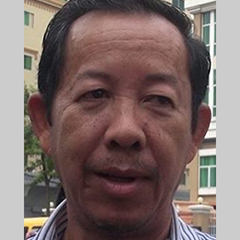 CITA/CCU, arrested Jul 31
CITA/CCU, arrested Jul 31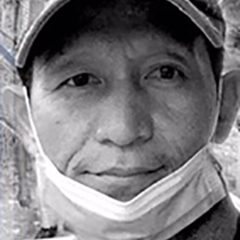 CNRP, arrested Aug 4
CNRP, arrested Aug 4 CNRP, arrested Aug 4
CNRP, arrested Aug 4 Khmer Thavrak, arrested Aug 7
Khmer Thavrak, arrested Aug 7 Khmer Thavrak, 30, arrested Aug 13
Khmer Thavrak, 30, arrested Aug 13 Khmer Thavrak, 38, arrested Aug 13
Khmer Thavrak, 38, arrested Aug 13 Khmer Win Party, arrested Aug 14
Khmer Win Party, arrested Aug 14 Rapper, 22, arrested Sep 4
Rapper, 22, arrested Sep 4 KSILA, arrested Sep 6
KSILA, arrested Sep 6 KSILA, arrested Sep 6
KSILA, arrested Sep 6 Khmer Thavrak, arrested Sep 7
Khmer Thavrak, arrested Sep 7 Rapper, 17, arrested Sep 7
Rapper, 17, arrested Sep 7 Khmer Thavrak, 20, arrested Sep 7
Khmer Thavrak, 20, arrested Sep 7 TikTok user, 22, arrested Sep 9
TikTok user, 22, arrested Sep 9 KSILA, arrested Sep 10
KSILA, arrested Sep 10
 Online seller, 35, arrested Mar 9
Online seller, 35, arrested Mar 9 CNRP, 49, arrested Mar 10
CNRP, 49, arrested Mar 10 CNRP, 32, arrested Mar 11
CNRP, 32, arrested Mar 11 CNRP, 29, arrested Mar 17
CNRP, 29, arrested Mar 17 CNRP, arrested Mar 18
CNRP, arrested Mar 18 CNRP, 52, arrested Mar 27
CNRP, 52, arrested Mar 27 CNRP, 52, arrested Apr 2
CNRP, 52, arrested Apr 2 Gas station worker, 21, arrested Apr 13
Gas station worker, 21, arrested Apr 13 Cheat Khmer newspaper, 41, arrested Jun 25
Cheat Khmer newspaper, 41, arrested Jun 25
 Rithysen Radio, arrested May 13
Rithysen Radio, arrested May 13 Sneha Cheat news, arrested Aug 7
Sneha Cheat news, arrested Aug 7 Mother Nature, 22, arrested Sep 3
Mother Nature, 22, arrested Sep 3 Mother Nature, 19, arrested Sep 3
Mother Nature, 19, arrested Sep 3 Mother Nature, 28, arrested Sep 3
Mother Nature, 28, arrested Sep 3 CNRP, arrested Oct 6
CNRP, arrested Oct 6
 CNRP/CITA, 52, arrested Apr 13
CNRP/CITA, 52, arrested Apr 13 CNRP, 50, arrested Apr 15
CNRP, 50, arrested Apr 15 CNRP, 54, arrested May 31
CNRP, 54, arrested May 31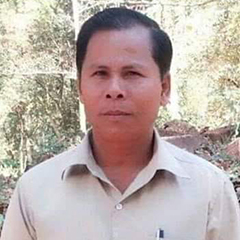 CNRP/CITA, arrested Jun 1
CNRP/CITA, arrested Jun 1 CNRP, 51, arrested Jul 10
CNRP, 51, arrested Jul 10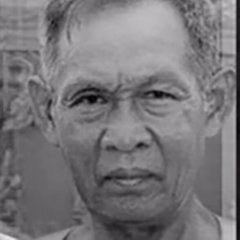 CNRP, 74, arrested Jul 10
CNRP, 74, arrested Jul 10 CNRP, 68, arrested Sep 6
CNRP, 68, arrested Sep 6 CNRP, arrested Sep 9
CNRP, arrested Sep 9
 CNRP, arrested Mar 26
CNRP, arrested Mar 26 CNRP, 55, arrested Apr 20
CNRP, 55, arrested Apr 20
 CNRP/CITA, 50, arrested Mar 26: Facebook criticism
CNRP/CITA, 50, arrested Mar 26: Facebook criticism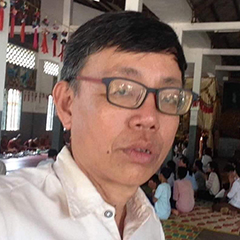 CNRP/CITA, 49, arrested May 27: Private phone call about MFI “crisis”
CNRP/CITA, 49, arrested May 27: Private phone call about MFI “crisis”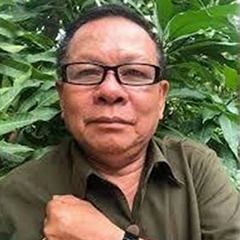 CNRP, 56, arrested Jun 5: Bail conditions
CNRP, 56, arrested Jun 5: Bail conditions












